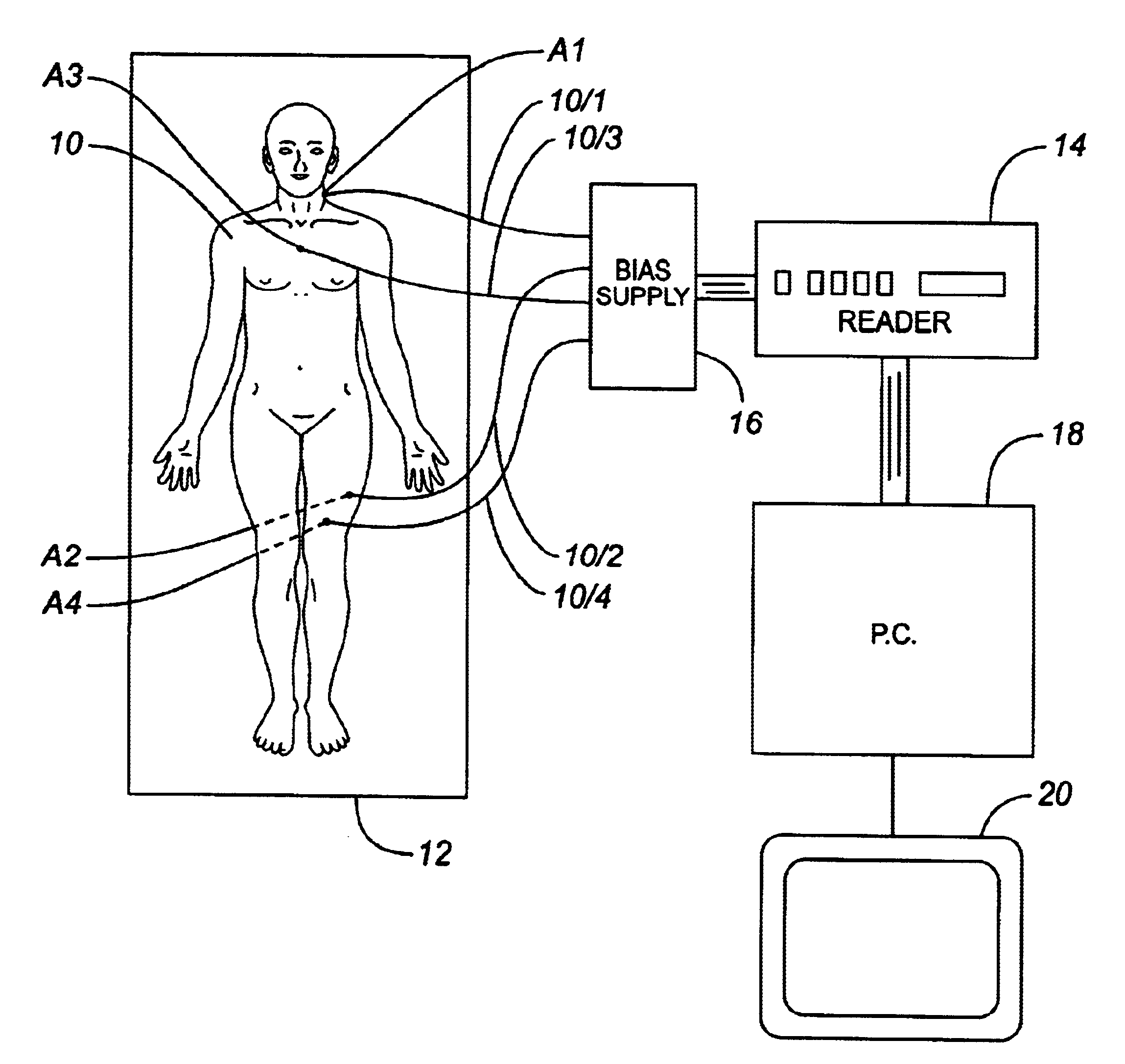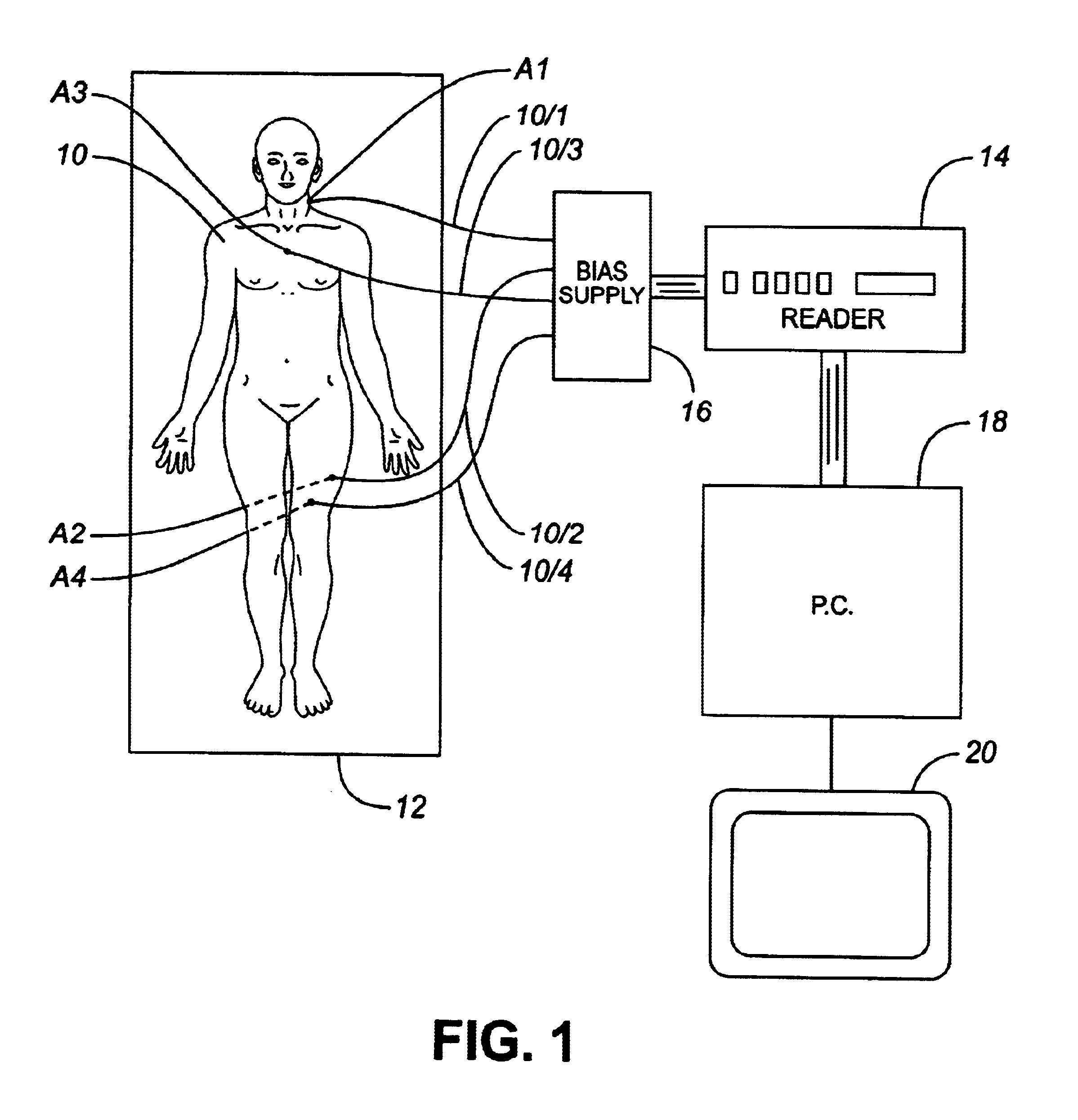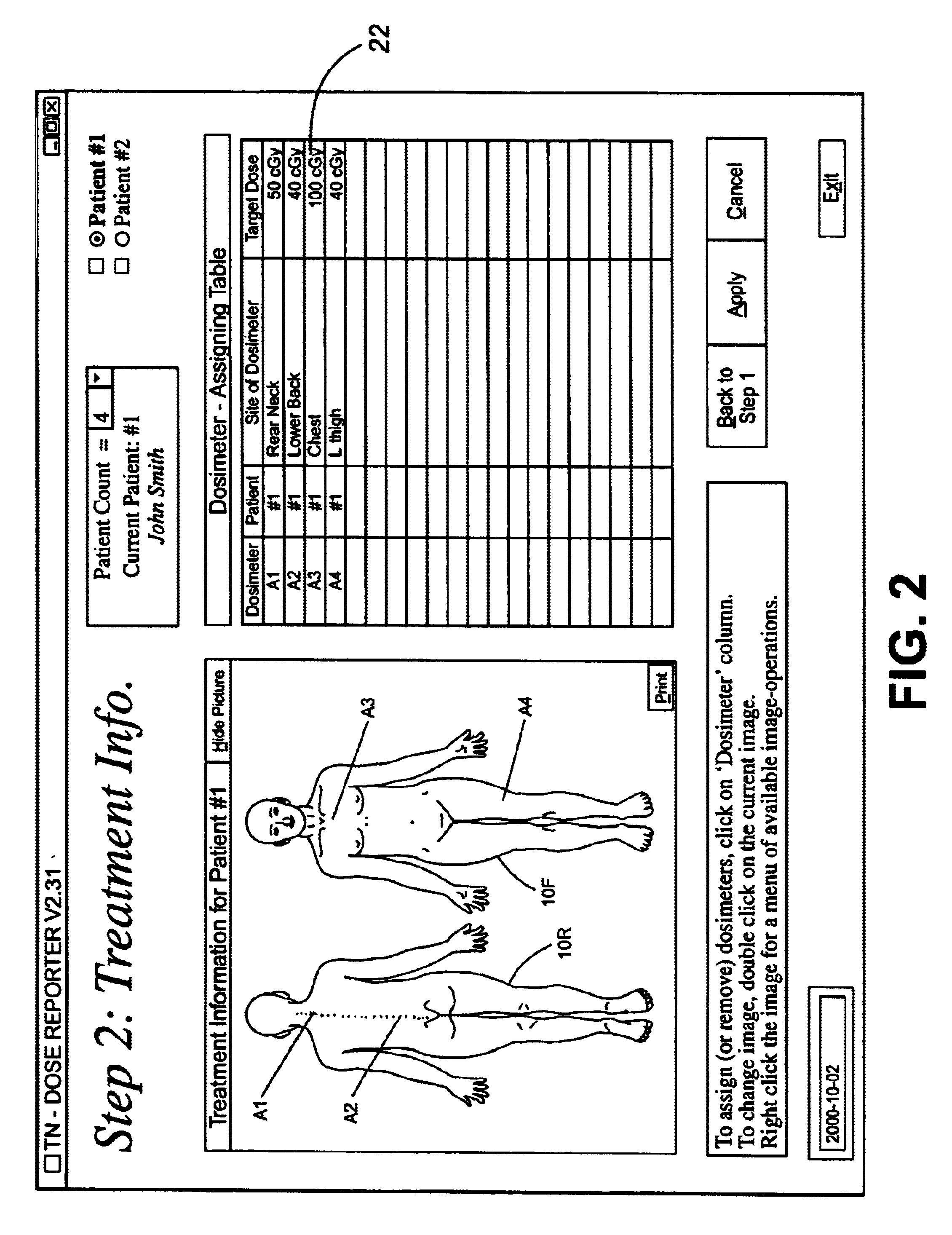Computer assisted radiotherapy dosimeter system and a method therefor
a computer-assist radiotherapy and dosimeter technology, applied in the field of computer-assist radiotherapy dosimeter system and a method therefor, can solve problems such as difficult confirmation
- Summary
- Abstract
- Description
- Claims
- Application Information
AI Technical Summary
Benefits of technology
Problems solved by technology
Method used
Image
Examples
Embodiment Construction
A dosimetry system for monitoring the amount of radiation to which a patient is subjected will be described with reference to FIG. 1 which illustrates a patient 10 who is to receive radiation therapy while lying on a table 12. The therapy entails irradiating the patient 10 by means of a radiation therapy machine, which might be an X-ray machine, a CT scanner, or other machine having means (not shown) for irradiating the patient. The dosimetry system comprises a set of MOSFET radiation sensors A1 . . . A4 positioned at predetermined locations on the patient's body and connected by leads 10 / 1 . . . 10 / 4, respectively, to a reader 14 (e.g. Thomson & Neilsen's reader, Model No. 50 [TN-RD-50]) by way of a bias supply unit 16. The reader 14 is connected to a personal computer 18 which controls a display device 20. The sensors A1-A4, bias supply 16, reader 14 and computer 18 may be of known construction and so will not be described in detail. The personal computer 18 is equipped with the s...
PUM
 Login to View More
Login to View More Abstract
Description
Claims
Application Information
 Login to View More
Login to View More - R&D
- Intellectual Property
- Life Sciences
- Materials
- Tech Scout
- Unparalleled Data Quality
- Higher Quality Content
- 60% Fewer Hallucinations
Browse by: Latest US Patents, China's latest patents, Technical Efficacy Thesaurus, Application Domain, Technology Topic, Popular Technical Reports.
© 2025 PatSnap. All rights reserved.Legal|Privacy policy|Modern Slavery Act Transparency Statement|Sitemap|About US| Contact US: help@patsnap.com



